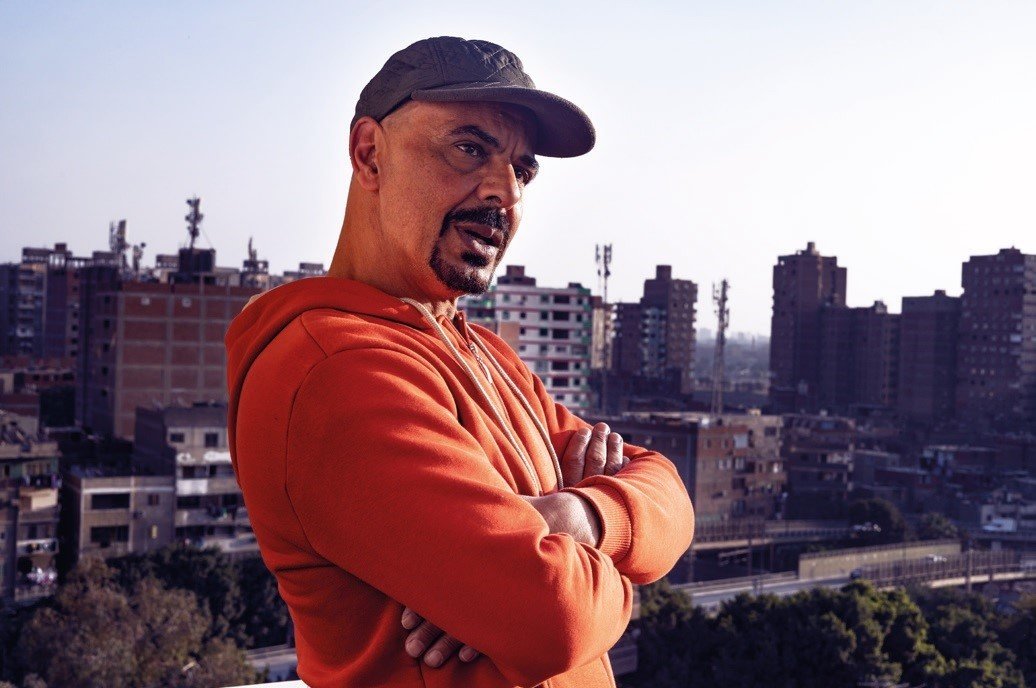
In February 2020, Jannis Stürtz's excellently curated Habibi Funk label released a 4-track 12" EP of early 2000s Libyan reggae from a musician named Ahmed Ben Ali. At the time, I was floored over by how effortlessly Ahmed blended the conventions and codes of reggae, dub and dancehall ragga with his own North African sensibility. Going off the EP's sales notes, it looked like Ahmed had had a rather colourful life. I made a mental note to try and find out more, but life got in the way.
Over three years later, Habibi Funk has just released an album-length reissue compilation of some of the best of Ahmed's music from the 2000s. A few weeks ago, I got offered some interview time with Ahmed. After listening to the blistering tunes on this reissue compilation, I wanted to speak with him. When we connected via Whatsapp last week, Ahmed was in good spirits, happy to reflect on his past, but also excited about what might come next.
As the story goes, Ahmed Ben Ali was born in Benghazi in 1965. From the early 1970s, reggae music arrived in Libya and quickly became a key influence on a generation of musicians that included Ibrahim Hesnawi, Najib Alhoush and The White Birds Band. By the time he was fourteen, Ahmed was playing music in the school band and falling in love with reggae music as well. That all said, before he released his own music, he'd go on a journey from Libya to Canada, the UK and back home again.
Test Pressing: How were you introduced to music?
Ahmed Ben Ali: When I was a child, I went to school, and we had a music class. I joined, and my music teacher noticed that I stood out as one of the students who really loved music. He’s the one who told me I should join the music team outside of class. I joined, and then I started listening to music everywhere. It was mostly our music, but Bob Marley was getting popular at the time. I would hear his tracks in cars and in some places. I really liked this music, but I didn’t know what it was called. I didn’t know Bob Marley. I didn’t know anything. I just liked the feel of it. Mainly because it is very similar to our rhythm, the folkloric rhythm in Libya. I think that’s why a lot of Libyan people liked reggae because they could feel the groove and dance to it easily.
What can you tell me about first hearing reggae in Libya?
As I was saying, a year or two after I joined my music team at school, I started talking to guys who were older than me and knew more about this. I would ask them, “What is this music I hear, and what is it called?” They told me about it. Now, this is an artist called Bob Marley, who is from Jamaica, but he is popular in England. After they explained things to me, I knew the name was reggae. Then I started learning more and more about it, but because of the language barrier, I couldn’t really know much more about it.
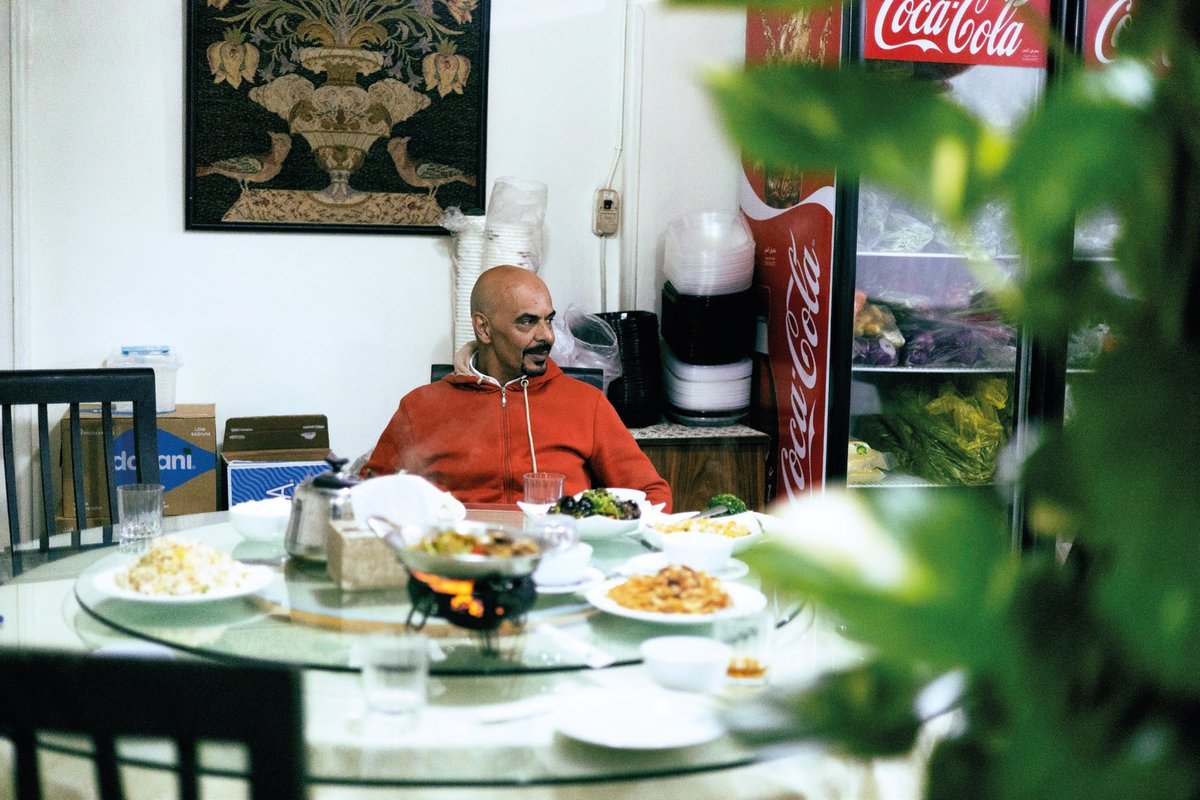
When did that change?
After I finished high school, I got a scholarship and went to Ottawa in Canada for seven years. That’s when things got more serious. I started learning English, and I met a lot of Jamaicans there. That’s when I really locked in. I was going to reggae concerts, and I even joined a couple of bands here and there. I was playing the keyboard. I really got into it, but I was always putting my Libyan stuff into the music.
Ottawa is a political capital, so it was quiet. But when it came to reggae, there were a lot of Jamaican bands, and a lot of artists came from Jamaica. When they came, I was always there. I learned all the reggae styles in Canada. I even learned how to speak Patois. I would rap in their slang, and they found it really funny. Most of the Jamaicans who didn’t know me thought I was from the Caribbean, and I would tell them, “No, I’m from North Africa. I’m a Libyan. I’m an Arab.”
Who were some of your favourite reggae artists?
The number one was Bob Marley for me because he’s who I heard first. But I listened to all kinds of reggae styles. Dancehall, you know? Like Frankie Paul and Gregory Isaacs, and then I got more into it, and I found Cocoa Tea, Barrington Levi, and Buju Banton. Listen, one thing about me is - and I don’t know why - there is always something I like in any style of music. If I listen to Indian music, something about it will grab me. If I listen to Arabic music or country music, something will grab me. So that is what made my music a little bit different because it is a mix. I don’t do it on purpose. It just comes out like this.
What other types of music do you enjoy?
You name it, you know? Like I said, I am into all types of music. You will think I’m weird in a way because I like different music. For example, I like Phil Collins. I like Kenny Rogers, The Bee Gees. I like Michael Jackson. There is always something I will like in any music.
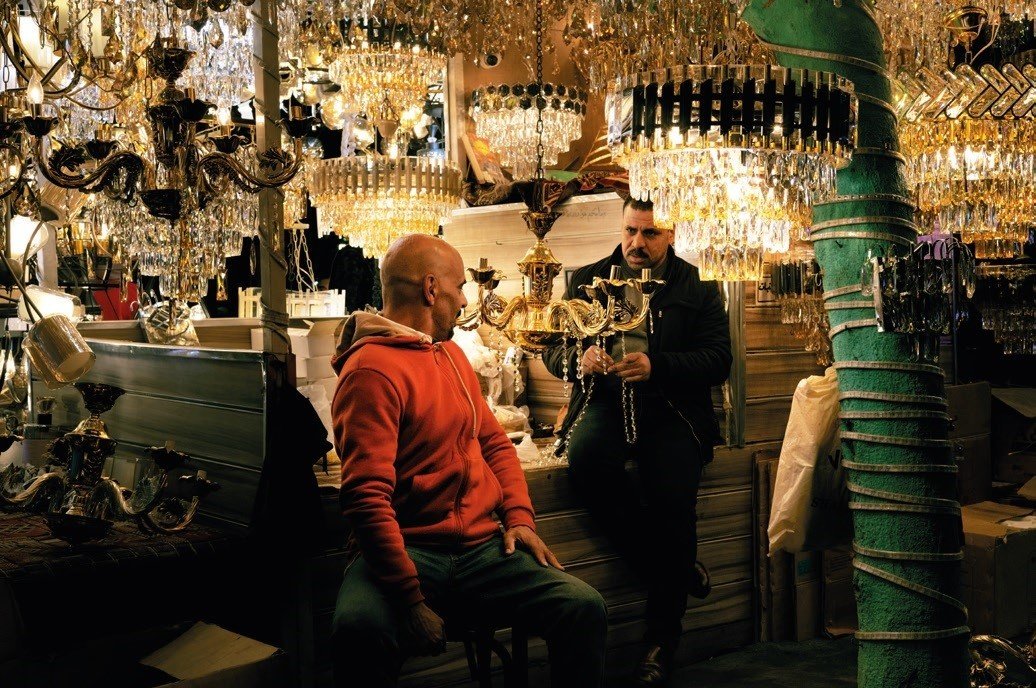
What were the first instruments you learned to play?
The first instrument I learned was the accordion, okay. I remember the first music class I went to in school. We had twenty-something kids. Each one had an accordion, and the teacher played something in front of us and wanted us to repeat it. I was the only one who got it correctly. So he said, “You are going to be on the school music team.” That was the start of it.
After that, I changed my instrument to the keyboard. I learned a lot of other instruments, but the keyboard is my main instrument. When I was in Canada, I joined a couple of bands, and I was helping them because I could easily play the bass lines. They would listen to old tracks and want to replay them, and I could show them what the instruments were saying. I was very accurate.
What were you doing in Canada outside of music?
I was going to school. I was studying civil aviation. I’m an airport ground engineer, but right now, I'm not doing that. It’s just not worth it in Libya.
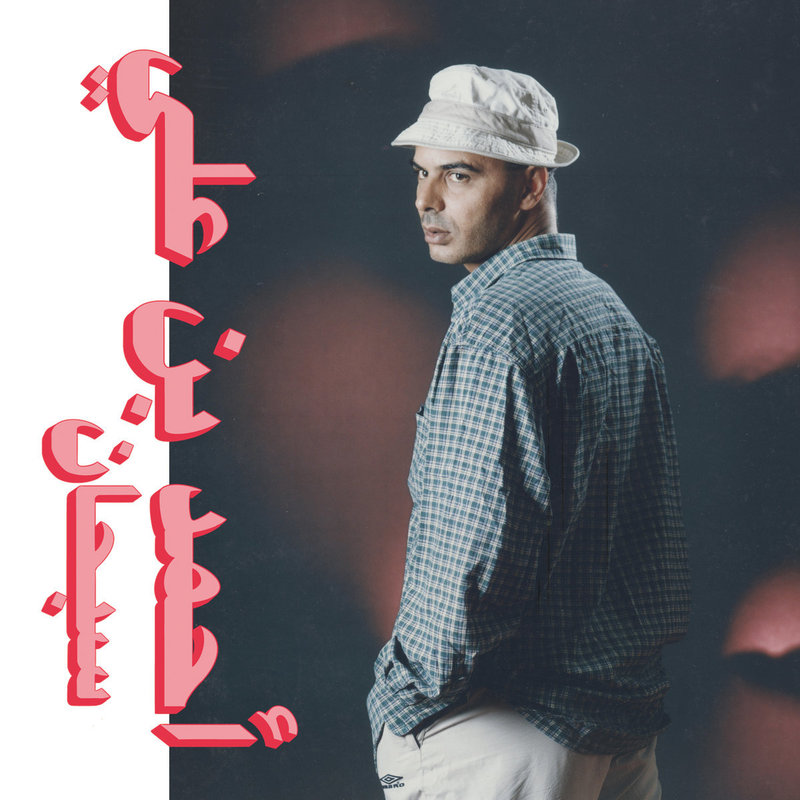
You’re also an audio engineer. You’ve recorded yourself and other artists. How did you move into that space?
Music engineering? I learned almost everything on my own. I took one course when I was living in England. After that, I dug into it. When I came back to Libya, there were sanctions, so there was no aviation. I went without a job for three or four years. At the time, I just concentrated on music and started my own studio in Benghazi. I had to learn the whole thing from the first note to the vinyl or CD, just finishing everything.
Tell me more about when you lived in England?
I stayed in London for a few years in the early 2000s. I worked in a completely different field for a building and maintenance company. The only reason I worked there was because I could speak English, and they had a lot of Arab clients. I was like a foreman, but I didn’t know much about building. At night, I’d get my gear, my keyboard and speakers and play music in Picadilly, sometimes Camden Town. I’d just go there and play by myself on the streetside.
Just like in Canada, I was playing reggae mixed with Arabic music. I wasn’t getting money or anything for it, but people liked it. It was my hobby, and it was nice to get feedback from people. I was always worried that if I put oriental notes into reggae or Western music, they would not feel it. But I always knew that one-day people would love to listen to my music, this mixed music.
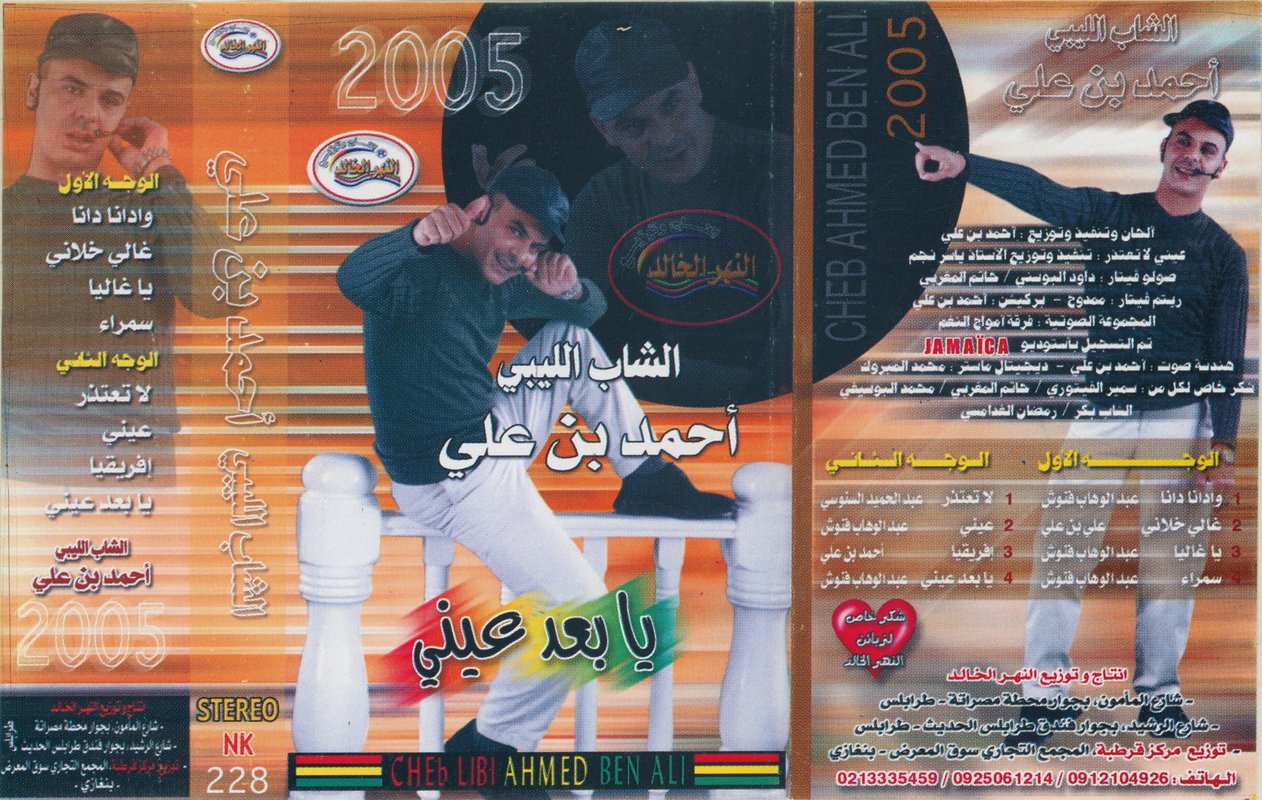
You recorded and released your first album after you moved back to Libya, right?
When I came back to Libya, I had it planned out. I bought all the gear I needed in the UK and brought it back. I built my own studio at home and started from there. Then I released my first album in 2005. After that, I was doing work for other singers as well, producing for them and doing raps on their records, you know, the Jamaican-style raps. No one else can really do it here.
So yeah, I got very popular here in Libya. But, you know, in Libya, Benghazi is not the capital. Tripoli is the capital, so I had to sell my music there. They liked it, but it is different from the reggae that other Libyan artists are playing here. My first album sold twenty thousand copies in the first week. I was really surprised. I thought, “Who are these twenty thousand people who like my music?” You know?
It’s interesting because apart from Habibi Funk reissuing your music, there are so few traces on the internet.
No, but there were a few tracks on Youtube. A friend of mine from the UK opened a Youtube channel for me and sent me the password. Then I lost contact with this friend and forgot the password. So I couldn’t get into my account. This was in 2007 or 2008, and a lot of people abused my music, especially in Turkey. I was just looking at the comments. That was the only thing I could do. After a while, I stopped looking. But from that time, when I had three or four tracks on there, I was looking at the comments and people from all over the world really loved them.
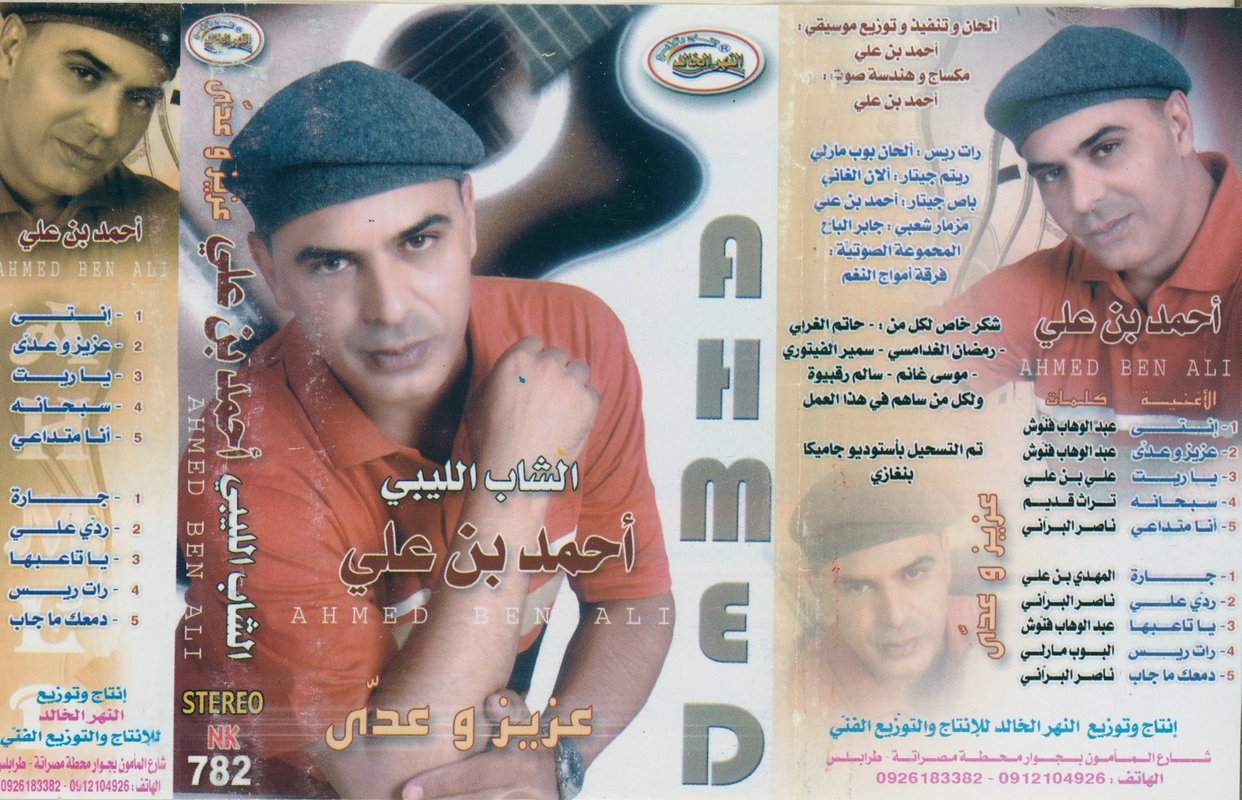
How did you cross paths with Jannis from Habibi Funk?
It was really by coincidence. I met Jannis for the first time back in January in Cairo. A cousin of mine said someone was looking for a contact number for me. It was this American guy who was friends with Habibi Funk. After my cousin phoned me, they contacted me. It was really nice. I always had faith in my music. Even when I sold my album here in Libya, and it sold how many ever copies, I knew that was not the end of it. I knew there would be even more if it went out to the world.
Life for artists, just struggling to make music while making ends meet, is very hard. I have a couple of kids. I have to work. So it felt really nice that there are people who still like my music which is more than ten years old. They really love it, and that was really refreshing for me. I was not surprised, but I was appreciative and happy.
Has it been a thrill to have your music pressed up on vinyl?
Yes. I thought vinyl was done with, and people had forgotten about it with CDs and all this technology, you know? Since I came back from England, people don’t really use vinyl in Libya anymore. I was really happy because when I released my first tracks with Habibi Funk, they sent me a few copies on vinyl, and I had to really look around to find a turntable. It took me a while to find one. Now, I have a nice one from Europe.
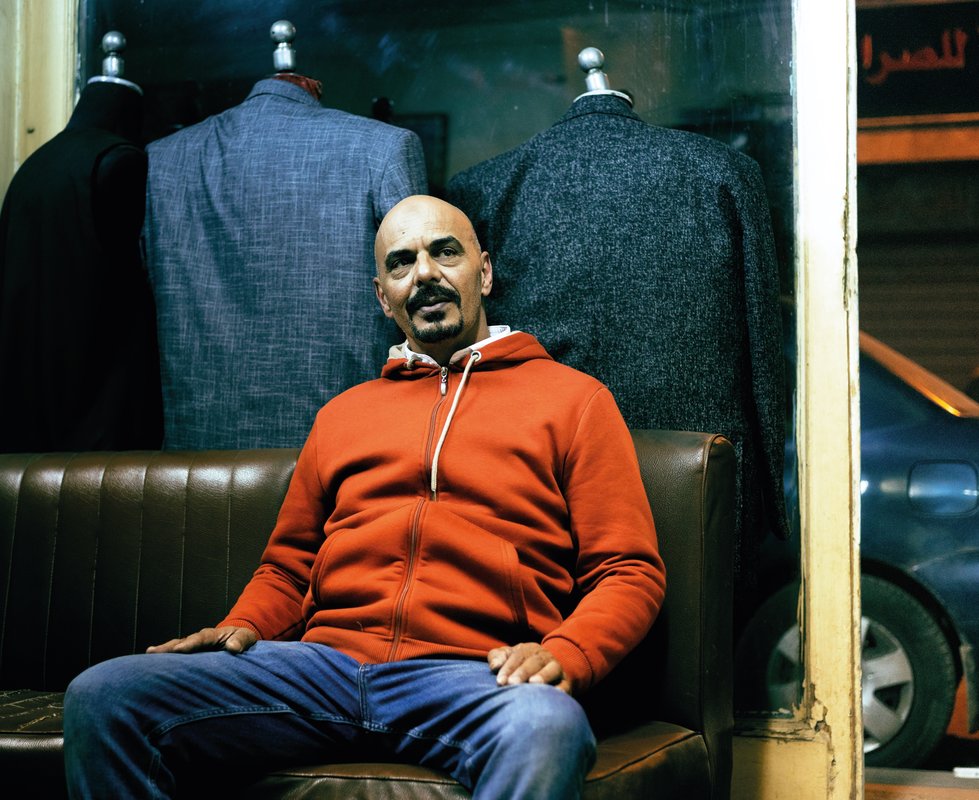
Do you still perform live?
Yes. I’ve done quite a few gigs in Turkey. I went to Cyprus, and Libya, of course. I’ve never performed in Europe or the US or anything, though. When I was in Turkey, I played by myself, singing over instrumentals. In Libya, I play with a band. I have a bass player, a drummer, and a keyboardist who plays with me. I also get a couple of trumpets.
I’m actually working on some new tracks now. One is ready, and another is coming, but I will probably see how this album goes and then maybe work on another. But you know, I still have quite a few tracks from before that have not been released. I think Habibi Funk is interested in my other tracks.
Habibi Funk 022: Subhana and Habibi Funk 012: Subhaha by Ahmed Ben Ali are out now through Habibi Funk.
